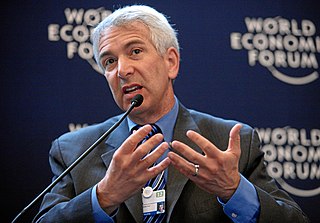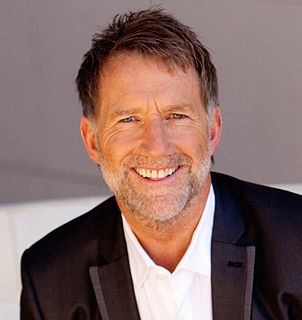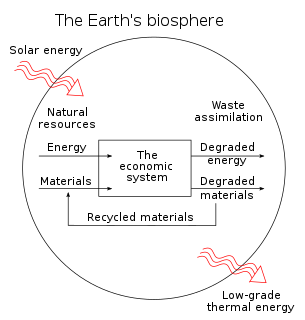A Quote by Kenneth E. Boulding
Economics has been incurably growth-oriented and addicted to everybody growing richer, even at the cost of exhaustion of resources and pollution of the environment.
Related Quotes
The cost of our success is the exhaustion of natural resources, leading to energy crises, climate change, pollution, and the destruction of our habitat. If you exhaust natural resources, there will be nothing left for your children. If we continue in the same direction, humankind is headed for some frightful ordeals, if not extinction.
For too long we have tried to consume our
way to prosperity. Look at the cost: polluted
lands and oceans, climate change, growing
scarcity of resources from food to land to fresh
water, rampant inequality. We need to invent a
new model; a model that offers growth and social inclusion... that is more respectful of the
planet's finite resources. Nature has been kind
to human beings, but we have not been kind to
nature.
Contrary to popular belief, we do not face a choice between economy and ecology, It is often said that protecting the environment would constrain or even undermine economic growth. In fact, the opposite is true: unless we protect resources and the earth's natural capital, we shall not be able to sustain economic growth.
I do sense, as compared with let's say the early '50s, there's somewhat more of a careerism. I don't think it's anything special to economics; it's equally true with physics or biology. A graduate education has become a more career-oriented thing, and part of that is because of the need for funding. In fact, that's a much worse problem in the natural sciences than it is in economics. So you can't even do your work in the natural sciences, particularly, and even to some extent in economics, without funding.
I know it's different today than when I was growing up, and that's fine. But I have never been somebody, even when I was earning $19,000 a year, I never ran around whining and moaning about what things cost. What they cost was what they cost. And if I couldn't afford it, then I had to find a way to afford it or forget about it for now. It's just the way it was.
The next decade will perhaps raise us a step above despair to a cleaner, clearer wisdom and biology cannot fail to help in this. As we become increasingly aware of the ethical problems raised by science and technology, the frontiers between the biological and social sciences are clearly of critical importance-in population density and problems of hunger, psychological stress, pollution of the air and water and exhaustion of irreplaceable resources.




































